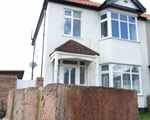 Go to main content
Go to main content
Archive Website of the UK government
Please note that this website has a UK government accesskeys system.
Main menu
Page menu
Money, tax and benefits

Tax on rental income - an overview

If you let out all or part of a property (including your home), how you're taxed on the rental income you earn depends on the type of letting. If you let property abroad, you may have to pay UK tax on the rental income if you're resident in the UK for tax.
Tax on residential lettings
Letting residential investment property is treated as running a business - even if you only let out one property. And if you let out more than one property in the UK, they'll all be treated as one single business.
Whether you let one or several properties, you're taxed on the overall 'net profit'. You work this out by:
- adding together all your rental income
- adding together all your allowable expenses
- taking the allowable expenses away from the income
Working out your net profit like this means you can offset a loss from one property against the profit from others. Your net profit counts as part of your overall taxable income.
You cannot claim capital allowances for equipment to be used in a dwelling house. Most residential accommodation is classed as a dwelling house.
The 'Rent a Room' scheme
Under the 'Rent a Room' scheme you can earn up to £4,250 tax free if you let furnished accommodation in your own home. If letting jointly this figure is halved to £2,125. These figures include income from things such as rent, meals provided and laundry services.
You'll have to pay tax on anything over £4,250. Or you can choose not to use the scheme if you'd prefer to pay tax via Self Assessment under the rules for residential property lettings.
Letting all or part of your home
If you let your home and live elsewhere, your profits from the rent are worked out and taxed in the same way as for residential property lettings.
You can’t deduct any rent that you pay for the property that you're living in from the profits of a home you're renting out.
The same rules apply if you let part of your home outside the 'Rent a Room' scheme. If you do this you can include a percentage of household costs such as gas and electricity when working out your allowable expenses.
Tax on furnished holiday lettings
If you let a furnished holiday home in the UK or the European Economic Area (EEA), the tax rules are different to those for residential lettings. The rules let you:
- reduce your profit by claiming 'capital allowances' for the cost of furniture and fixtures that you provide inside the property you let
- offset any losses against your overall income, not just against your rental income - only for tax years up to and including 2010-11
Also, when you sell the property you may be able to take advantage of extra reliefs that'll bring down your Capital Gains Tax bill.
Tax on overseas property lettings
If you're 'resident' or 'ordinarily resident' and 'domiciled' in the UK you have to pay tax on income you get from overseas property lettings. This applies whether you bring the money into the UK or not. If you're 'resident', but 'not ordinarily resident' and 'not domiciled' in the UK you may only have to pay tax on money you bring into the UK. For an explanation of these terms and to find out more use the link to the HM Revenue & Customs (HMRC) residence guidance below.
If you've already paid foreign tax on your letting income, you can usually offset this against the UK tax you'll have to pay on it.
Record keeping for landlords
Whatever type of letting it is you'll have to keep records of your income and expenses for at least six years. HMRC can ask to see supporting information for your figures at any point during this time.
Even though you can't claim expenses when you use the Rent a Room scheme, it may still be worth keeping proper records. You'll need them if you decide to opt out of the scheme later.
Declaring and paying tax on your rental income
If your total income from UK property in the 2011-12 tax year is under £70,000 you can group the expenses as a single total on the Self Assessment tax return. If it's £70,000 or more, you'll need to show your expenses separately. If your taxable income from property is under £2,500 HMRC may be able to collect any tax you owe through PAYE (Pay As You Earn). You need to already pay tax through PAYE to take advantage of this.
 Facebook
Facebook Twitter
Twitter StumbleUpon
StumbleUpon Delicious
Delicious Reddit
Reddit